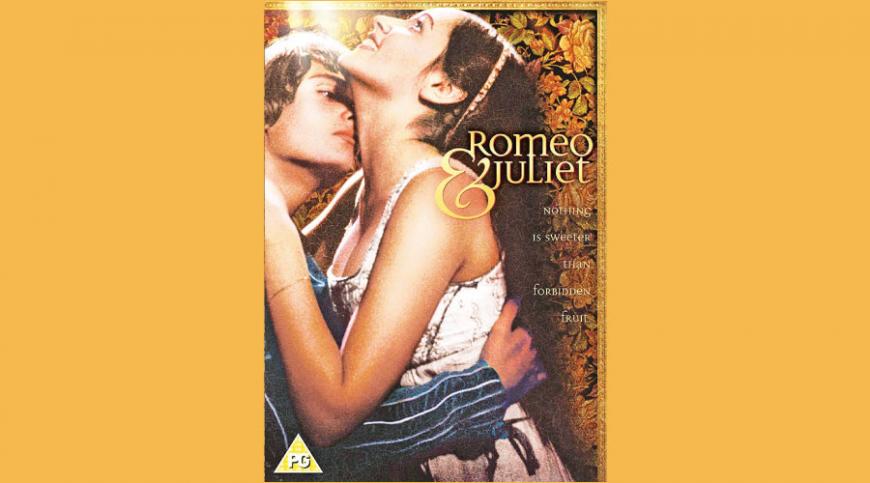
Franco Zeffirelli’s film adaptation of William Shakespeare’s Romeo and Juliet is a British-Italian production which stars Leonard Whiting as Romeo Montague, Olivia Hussey as Juliet Capulet, John McEnery as Mercutio, Milo O’Shea as Friar Laurence, Pat Heywood as the Nurse, Robert Stephens as the Prince, Michael York as Tybalt, Bruce Robinson as Benvolio, Paul Hardwick as Lord Capulet, Natasha Parry as Lady Capulet, Antonio Pierfederici as Lord Montague, Esmeralda Ruspoli as Lady Montague, Keith Skinner as Balthasar and Roberto Bisacco as Paris.
The film stays true to Shakespeare’s play and is set in Verona and Mantua in Italy during the Renaissance period in the fifteenth century. The plot focuses on the ill fated young lovers named Romeo and Juliet who defy their parents and get married.
The critic Adrian Poole in his Introduction to the Penguin Classics edition of the play says, “Romeo and Juliet is a hymn to youth, to passion, to speed, to danger. It is also a warning, a memento mori. It is scarcely the only play of Shakespeare’s to pose such a challenge to the audience, at once inviting and frustrating the impulses to sympathy and judgement, insisting we hear the conflicting voices and see the contrary points of view…Whatever ideas an audience may entertain about the rights of parents to abuse their children, it’s clear there must have been plenty of Elizabethans who identified with a different conception of marriage, newly emerging out of Protestant and humanist beliefs in individual choice. The idea that a young man and woman might decide for themselves has become sufficiently familiar to readers and audiences in the First World that there’s a danger of forgetting how novel and dangerous it once was, what a ‘prodigious birth’ it must have once been, to borrow Juliet’s unforgettable phrase (1.5.140).”
Romeo and Juliet features Shakespeare’s most beautiful poetry and the play is appealing because the lovers are unconventional and rebellious. Juliet’s innocence and sincerity during the courtship is charming, and she tells Romeo is Act 2 Scene 2, “I’ll prove more true / Than those that have more cunning to be strange…” Juliet’s rebellion against her parents, especially against her mother in refusing to marry Paris is justified because Lady Capulet is a cold woman who is indifferent to Juliet and was in fact never a mother to her. Juliet’s unforgettable words to her mother in Act 3 Scene 5, “Now by Saint Peter’s Church, and Peter too, He shall not make me there a joyful bride” vindicates Juliet’s right as a neglected and abused child to rebel against her mother and choose her own husband.
Franco Zeffirelli’s film adaptation of Shakespeare’s Romeo and Juliet is the best screen adaptation of the play, and Olivia Hussey and Leonard Whiting give brilliant performances. Zeffirelli also produced a very good stage production of Romeo and Juliet for the Old Vic Theatre in England, featuring a brilliant cast with Judi Dench as Juliet and John Stride as Romeo. Romeo and Juliet has also been adapted into many operas.
